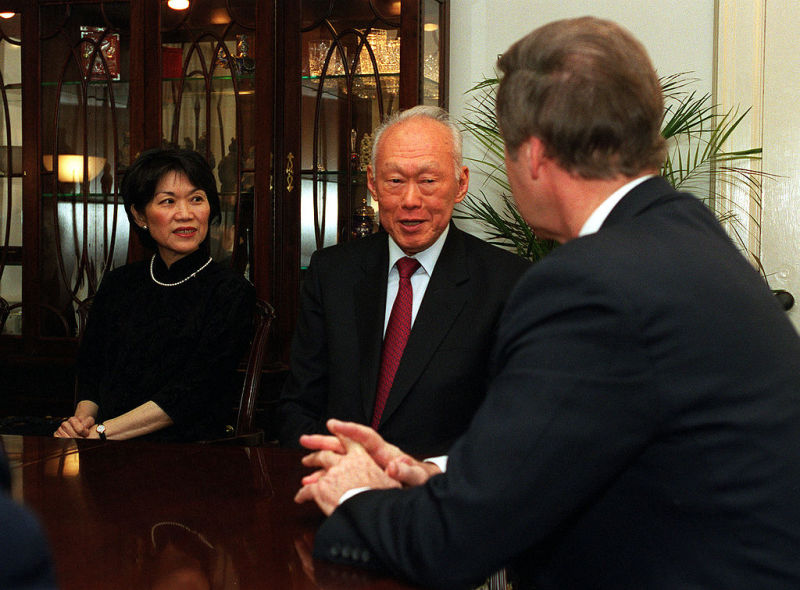

Lee Kuan Yew meets with former U.S. Secretary of Defense William Cohen in 2000. Lee passed away early Monday morning at age 91.
Lee Kuan Yew, the first prime minister of Singapore, died on Monday, March 23 at the age of 91. Lee had been fighting pneumonia since February.
Lee is well-known for his leadership that brought Singapore to economic stability and prosperity over his 31 years of leadership from 1959 to 1990. A country that was once was a territory under British rule, Singapore is now one of the wealthiest nations in Southeast Asia.
His son, Lee Hsien Loong, the current prime minister of Singapore, described that his father gave himself "in full measure" to building the country.
"As he himself put it towards the end of his life: 'I have spent my life, so much of it, building up this country. There is nothing more that I need to do. At the end of the day, what have I got? A sucessful Singapore. What have I given up? My life,'" Lee Hsien Loong continued.
No one can deny his dedication towards the development of the country and the astounding progress that Singapore has made due to his leadership, the late Lee is also scrutinized and criticized for his harsh and authoritative leadership style, as many say that he restricted and violated human rights during his years in leadership.
"Lee Kuan Yew's tremendous role in Singapore's economic development is beyond doubt, but it also came at a significant cost for human rights," Phil Robertson, the deputy Asia director of Human Rights Watch, told the New York Times. "And today's restricted freedom of expression, self-censorship, and stunted multiparty democracy is also part of his legacy that Singapore now needs to overcome."
One of the reasons Lee rejected a liberal style of democracy similar to that of Western cultures is that he believed it would lead to a more "troubled society," according to the Los Angeles Times.
The L.A. Times further reported that Singapore is "consistently ranked as one of the least corrupt countries in the world."
Singaporean citizens include a mixture of ethnicities, including Chinese, Malay, and Indian, and Singapore uses English as its common language.

















